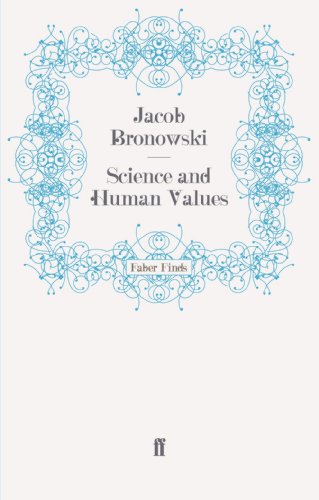Dissent as a Scientific Virtue
First, of course, comes independence, in observation and thence in thought. I once told an audience of school-children that the world would never change if they did not contradict their elders. J was chagrined to find next morning that this axiom outraged their parents. Yet it is the basis of the scientific method. A man must see, do and think things for himself, in the face of those who are sure that they have already been over all that ground. In science, there is no substitute for independence.
[...]
Independence, originality, and therefore dissent: these words show the progress, they stamp the character of our civilization as once they did that of Athens in flower. From Luther in 1517 to Spinoza grinding lenses, from Huguenot weavers and Quaker ironmasters to the Puritans founding Harvard, and from Newton's religious heresies to the calcu¬ lated universe of Eddington, the profound movements of history have been begun by unconforming men. Dissent is the native activity of the scientist, and it has got him into a good deal of trouble in the last ten years. But if that is cut off, what is left will not be a scientist. And I doubt whether ^t will be a man. For dissent is also native in any society which is still growing. Has there ever been a society which has died of dissent? Several have died of conformity in our lifetime.
Dissent is not itself an end; it is the surface mark ot a deeper value. Dissent is the mark k of freedom, as originality is the mark of indej>endence of mind. And as originality and independence are private needs for the existence of a science, so dissent and freedom are its public needs. No one can be a scientist, even in private, if he does not have independence of observation and of thought. But if in addition science is to become effective as a public practice, it must go further; it must protect independence. Tf^'he safeguards which it must offer are patent: free inquiry, free thought, free speech, tolerance. These values are so familiar to us, yawning our way through political perorations, that th^ey seem self-evident. But they are self-evident, that is, they are logical I needs, only where men are committed to explore the truth: in a scientific society. These freedoms (5 of tolerance have never been notable in a dogmatic society, even i when the dogma was Christian. They have been granted only when scientific thought flourished once before, in the youth of Greece.
Notes:
Without dissent, there is no progress.
Folksonomies: scientific virtue virtue science virtue
Taxonomies:
/society (0.557009)
/science (0.527861)
/religion and spirituality (0.407757)
Keywords:
dissent (0.967446 (negative:-0.472123)), surface mark ot (0.828621 (neutral:0.000000)), independence (0.790542 (negative:-0.071114)), Scientific Virtue (0.681823 (neutral:0.000000)), Quaker ironmasters (0.677197 (neutral:0.000000)), scientific method (0.661294 (positive:0.602757)), Huguenot weavers (0.657454 (neutral:0.000000)), religious heresies (0.653132 (neutral:0.000000)), scientific thought (0.652360 (neutral:0.000000)), profound movements (0.651172 (neutral:0.000000)), free thought (0.643476 (positive:0.396400)), dogmatic society (0.637829 (negative:-0.333050)), good deal (0.637741 (negative:-0.481170)), unconforming men (0.637559 (neutral:0.000000)), deeper value (0.637114 (neutral:0.000000)), native activity (0.636289 (negative:-0.450073)), Tf^'he safeguards (0.633879 (positive:0.409907)), scientific society (0.625928 (positive:0.230979)), political perorations (0.621490 (negative:-0.694472)), public practice (0.617625 (positive:0.452332)), private needs (0.617094 (negative:-0.404849)), public needs (0.616329 (negative:-0.666406)), free speech (0.616052 (positive:0.317225)), free inquiry (0.615451 (positive:0.462234)), addition science (0.614349 (positive:0.452332)), originality (0.612871 (negative:-0.348506)), scientist (0.552155 (negative:-0.400603)), observation (0.506541 (neutral:0.000000)), progress (0.492370 (negative:-0.126482)), tolerance (0.487896 (negative:-0.307815))
Entities:
scientist:JobTitle (0.874503 (negative:-0.404100)), Greece:Country (0.448828 (neutral:0.000000)), Athens:City (0.448732 (neutral:0.000000)), Eddington:City (0.442703 (neutral:0.000000)), Luther:Person (0.436535 (neutral:0.000000)), Newton:Person (0.412610 (neutral:0.000000)), ten years:Quantity (0.412610 (neutral:0.000000))
Concepts:
Science (0.963308): dbpedia | freebase | opencyc
Scientific method (0.922017): dbpedia | freebase
Pseudoscience (0.615263): dbpedia | freebase
Epistemology (0.579743): dbpedia | freebase | opencyc
Mathematics (0.553206): dbpedia | freebase | opencyc
Theory (0.522565): dbpedia | freebase
Aristotle (0.508521): dbpedia | freebase | opencyc | yago
Axiom (0.502463): dbpedia | freebase






